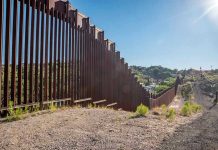
With a single threat to freeze New York’s federal lifeline if voters back a socialist mayoral candidate, Trump has transformed a local election into a high-stakes national standoff over the future of American urban power—and both sides are playing for keeps.
Story Snapshot
- Trump vows to cut off federal funds if Zohran Mamdani, a democratic socialist, wins NYC’s mayoral race
- The threat redefines federal-state relations, with legal, economic, and political shockwaves
- Early voting surges, turning the race into a referendum on Trump’s presidency and urban policy
- National party strategies hang in the balance as legal experts warn of destabilizing precedent
Trump’s Funding Threat: A New Tool in Urban Power Struggles
Donald Trump has taken the New York City mayoral race hostage, wielding federal funding as leverage against the city’s voters. By explicitly linking New York’s access to federal support with the outcome of the mayoral race, Trump has upended decades of precedent. This is not the first time a president has threatened funding cuts, but never before has a White House tied billions in federal dollars to the whims of a local ballot box. The message to New Yorkers is blunt: elect a socialist, lose your safety net.
The move arrives just as Zohran Mamdani, the self-described democratic socialist candidate, surges in the polls. Trump’s supporters hail the threat as a necessary bulwark against what they see as a disastrous left-wing takeover of America’s largest city. Detractors, including many conservatives who value federalism, warn this is a dangerous precedent—one that blurs the lines between national authority and local autonomy, and opens the door to future abuses by both parties.
How Did We Get Here? The Battle Lines and the Players
Trump’s overnight threat came on the eve of Election Day, just as early voting in New York reached historic highs. The president’s direct intervention is both a signal to his base and a challenge to urban Democrats: toe the line, or pay the price. On the other side stands Mamdani, whose platform of aggressive housing reform, expanded social programs, and police overhaul has electrified progressives and alarmed city power brokers. Former Governor Andrew Cuomo, who has denied Trump’s unsolicited endorsement, finds himself awkwardly positioned between the warring camps—neither fully embraced by the Trump camp nor by the city’s ascendant left. The threat is more than a campaign tactic; it is a weaponization of federal purse strings, and everyone from City Hall to the Capitol is taking note.
New York’s voters now face a stark choice: back a transformative progressive agenda and risk a fiscal crisis, or play it safe and preserve a troubled status quo. The implications reach far beyond city limits. Other blue-state leaders, watching from the sidelines, are recalibrating their own strategies, sensing that the rules of engagement have changed. For Trump, the gambit is clear—demonstrate unflinching resolve, intimidate opposition strongholds, and reshape the national conversation about what kind of cities America should have. For Democrats, the threat is a test of unity and backbone, an opportunity to frame Trump’s move as an assault on democracy itself.
Legal, Economic, and Political Fallout: Uncharted Territory
The immediate uncertainty over New York’s federal funding has triggered a flurry of legal analysis. Experts point to constitutional limits on the president’s authority to withhold funds—especially those already appropriated by Congress. Yet, the threat itself is destabilizing. City agencies are drawing up contingency plans; public sector unions are mobilizing; Wall Street is watching bond ratings. The specter of withheld funds—regardless of its enforceability—casts a shadow over public services, infrastructure, and the city’s most vulnerable residents.
Politically, the stakes are even higher. Trump’s maneuver reframes the mayoral race as a national referendum on his second-term agenda, and Mamdani’s shrinking lead suggests the threat has real electoral consequences. Early voting records hint at a mobilized, polarized electorate. If Trump prevails in this gambit, future presidents may see local elections as fair game for federal intervention. If he fails, it could embolden cities to push back even harder against Washington’s reach. Either way, American urban policy, federal-state relations, and party strategies may never look the same.
Expert Voices: Is This the Breaking Point for Federalism?
Political analysts call the New York race a “referendum on this current administration,” underscoring the national implications for both parties. Legal scholars warn that, while threats to funding often founder in the courts, the normalization of such tactics undermines the constitutional balance between federal and local government. Urban policy experts caution that destabilizing the finances of a city as large as New York could ripple across the country, affecting bond markets, public confidence, and the viability of progressive governance in urban America.
Some experts see Trump’s threat as mere bluster, a political bluff designed to chill opposition and rally his base. Others point to his past willingness to act on such threats—most notably in sanctuary city fights—as evidence that the risk is real. Either way, the showdown in New York has set a precedent: the White House can—and will—play hardball with America’s cities, and the rest of the country is watching to see how the story ends.
Sources:
Trump freezes $18 billion in funding for NYC, home to key Democratic leaders









